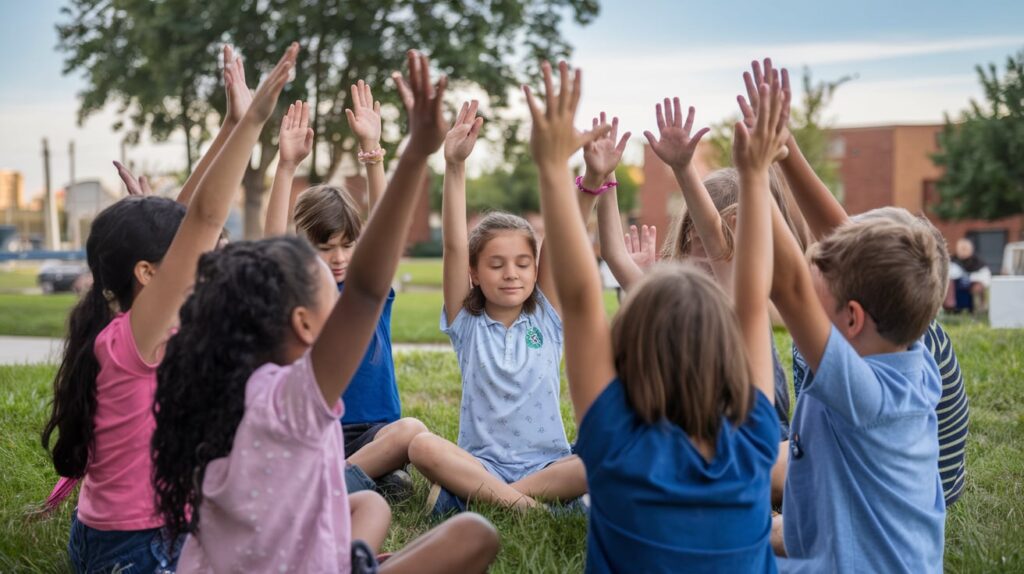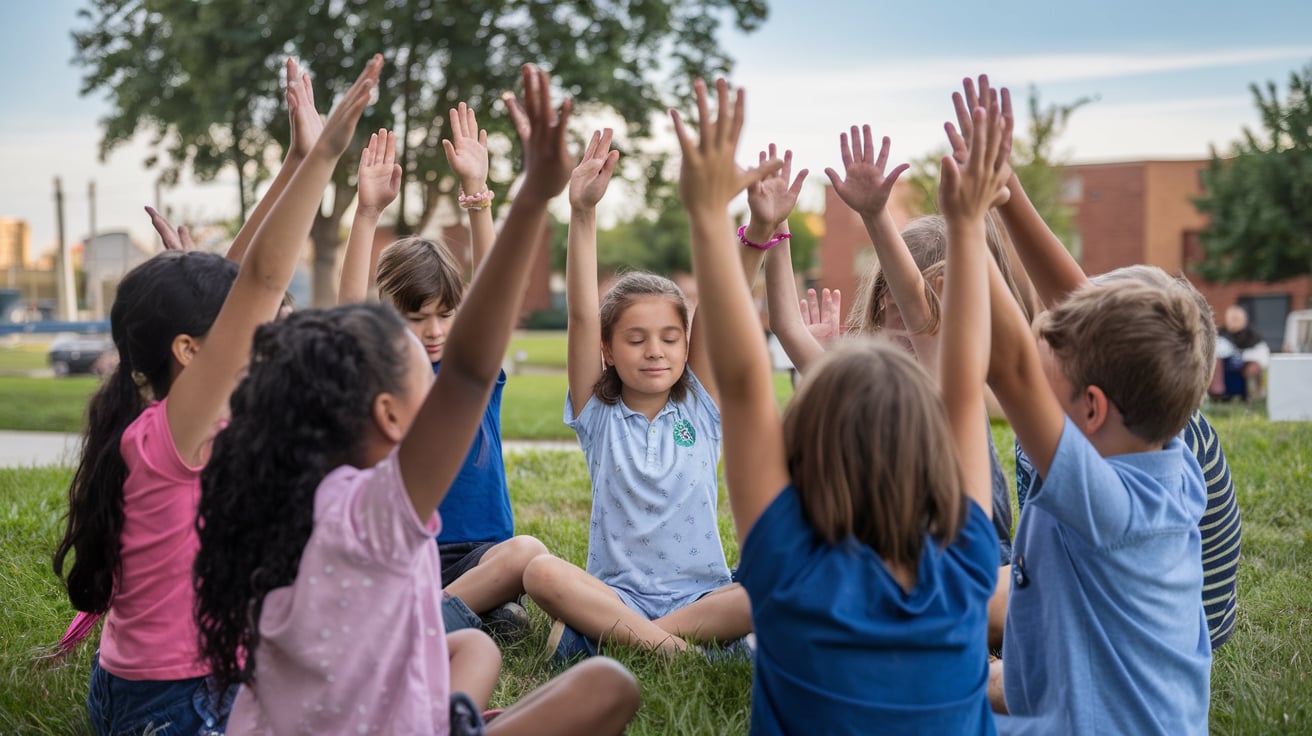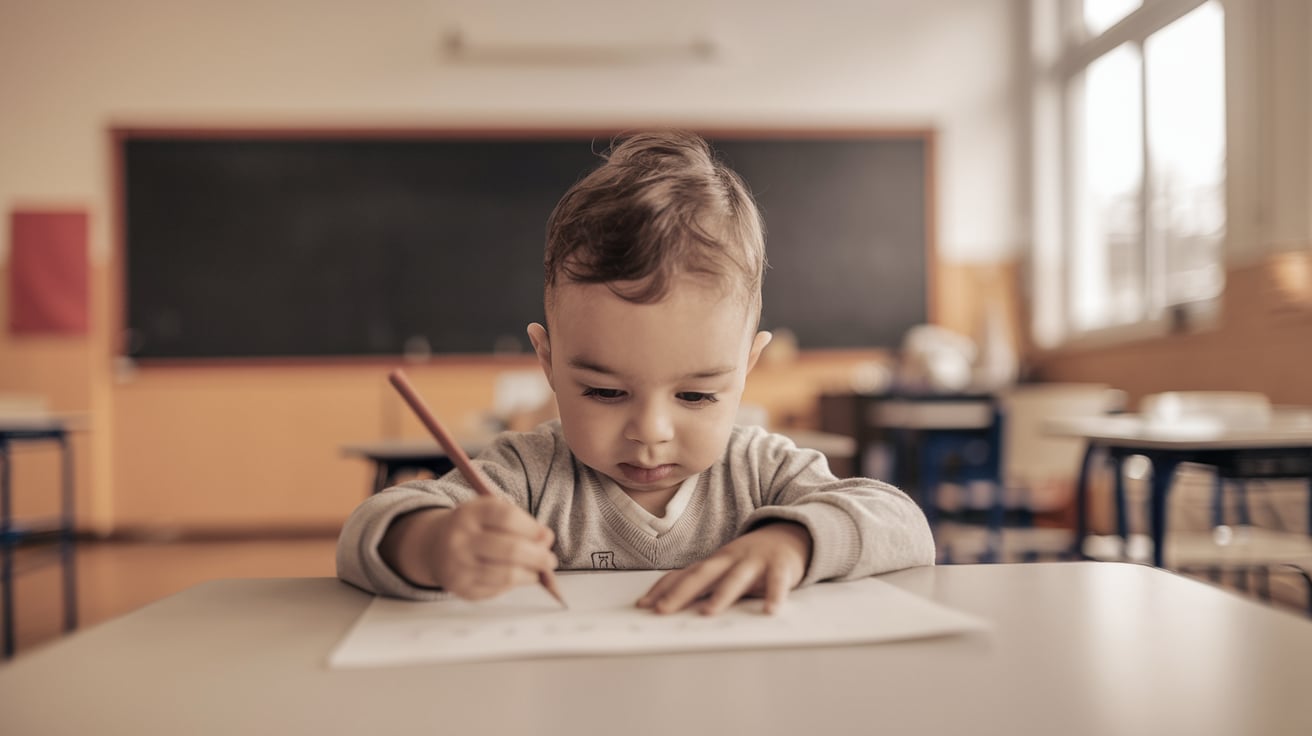
Social Withdrawal for Kids: Helping Children Connect
Dealing with social interactions can be tough for kids. Social withdrawal is common and can stop them from making friends and learning important social skills. It’s key for parents and caregivers to know the signs, causes, and effects of social withdrawal. They need to help their children feel confident and have good social experiences.
This article looks at social withdrawal in kids. It offers a detailed guide to help young Australians deal with shyness, social anxiety, and being rejected by peers. We’ll cover activities, role-playing, and ways to boost self-confidence. The goal is to help our kids do well in social situations and grow into well-adjusted adults.
Key Takeaways
- Understand the signs and causes of social withdrawal in children
- Recognise the impact of social withdrawal on a child’s development and well-being
- Discover effective methods to foster social skills and build self-confidence
- Learn how to overcome shyness and anxiety through cognitive-behavioural techniques
- Encourage positive peer interactions and address issues like bullying and peer rejection
Understanding Social Withdrawal in Kids
Social withdrawal in children is a complex issue. It can affect their social, emotional, and cognitive development. It’s when kids don’t want to join in social activities, struggle to make friends, and shy away from social events. Knowing the signs and causes is key for parents and caregivers to help.
Signs of Social Withdrawal
Spotting the signs of social withdrawal in kids is the first step. Some common signs include:
- Prefering to play alone or do solo activities
- Having trouble starting or keeping conversations with friends
- Staying away from group settings, like birthday parties or school events
- Stepping back from social interactions, even with family
- Feeling uncomfortable or anxious in social situations
Causes of Social Withdrawal
The reasons for social withdrawal in kids can vary. They might include:
- Temperament: Some kids are naturally shy or introverted, leading to social withdrawal.
- Family Dynamics: How a family interacts and models social behaviour can shape a child’s social skills.
- Past Negative Experiences: Bad social experiences, like bullying or rejection, can make kids hesitant to socialise.
- Underlying Mental Health Conditions: Issues like social anxiety disorder or depression can also cause social withdrawal.
Understanding the causes of social withdrawal is vital. It helps in creating effective support and interventions for kids.
The Impact of Social Withdrawal
Social withdrawal in children can deeply affect their growth and wellbeing. Kids who stay away from their friends miss out on chances to improve their social skills. They also miss the chance to build strong relationships and feel good about themselves.
One big problem with childhood social withdrawal is social isolation. Kids who pull back often have fewer friends and find it hard to keep friends for long. This can make them feel lonely, which can harm their mental health and emotional strength.
But social withdrawal’s effects aren’t just in social areas. It can also hurt a child’s schoolwork and brain growth. Friends help kids get better at solving problems, feeling empathy, and talking well. These skills are key for doing well in school and later in life.
Maybe the worst part is how social withdrawal can hurt a child’s self-esteem and confidence. When kids are often left out or rejected, they might start to feel less worthy. This can make them more likely to feel anxious or depressed.
It’s very important to tackle social withdrawal, childhood isolation, and peer rejection early. By helping kids develop social skills, build confidence, and have positive interactions with friends, we can help them do well in school and life. Parents and caregivers play a big role in making sure kids are happy and successful socially and academically.
Fostering Social Skills
It’s vital for kids to have strong social skills for their wellbeing and success. Parents and caregivers can help by choosing the right activities and practice sessions for their age.
Age-Appropriate Activities
Choosing activities that match a child’s age is key. Young kids benefit from games that teach teamwork, talking, and taking turns. As they get older, workshops and play dates help them deal with more complex social situations.
Role-Playing and Practice
Role-playing is a great way to boost kids’ social confidence. It lets them practice handling different social situations. Parents can guide them in learning important skills like solving conflicts, showing empathy, and talking effectively.
| Age Group | Recommended Activities |
|---|---|
| Early Childhood (3-6 years) | Cooperative games Pretend play Guided group activities |
| Middle Childhood (7-10 years) | Social skills workshops Structured play dates Role-playing scenarios |
| Early Adolescence (11-13 years) | Team-building exercises Peer-led discussions Volunteer opportunities |
By focusing on social skills through the right activities and role-playing, parents can help kids become confident and competent in social situations.
Building Self-Confidence
Building strong self-confidence is key for kids who struggle with social withdrawal. We can help them feel more capable and confident. This way, they can start to enjoy social interactions more.
One great strategy is to give genuine and specific praise. Praising their efforts and skills makes them feel valued. It’s simple, like complimenting their art or their kindness.
Letting kids follow their interests is also powerful. When they do things they love, they feel successful. This boosts their confidence and helps them meet others who share their passions.
Also, giving kids chances to succeed is very important. It could be winning a game or doing well in school. Celebrating these moments helps them feel more confident and ready for new challenges.
“The key to building self-confidence in kids is to help them experience success and feel capable in their own right.”
By praising, supporting their interests, and giving them chances to succeed, we help kids overcome shyness. This opens the door to better social connections. It’s a big step towards their happiness and growth.
Overcoming Shyness and Anxiety
Children with shyness or social anxiety can find help in cognitive-behavioural techniques. These methods help them manage their thoughts, feelings, and actions. They learn to face their fears and respond better in social situations.
Cognitive Behavioural Techniques
Gradual exposure is a key strategy. It means slowly getting kids used to social settings. This helps them build confidence and learn to cope.
Using positive self-talk can also help. It helps kids fight off negative thoughts that make them anxious.
Teaching kids relaxation techniques like deep breathing and meditation is also important. These methods help them deal with the physical signs of shyness and anxiety. By combining these physical strategies with mental tools, kids can better control their emotions and actions.
- Gradual exposure to social situations
- Positive self-talk to challenge negative thoughts
- Relaxation exercises to manage physical anxiety symptoms
With time and effort, these techniques can help kids beat shyness and anxiety. This opens the door to more meaningful social connections.
Encouraging Positive Peer Interactions
For children who struggle with social interactions, the world can seem overwhelming. But, with the right help, they can learn to connect with others. Playdates are key, offering a safe space for kids to meet and play under supervision.
Facilitating Playdates
Playdates can change a child’s life. They offer a place for kids to learn social skills, gain confidence, and make friends. Here are some tips for setting up playdates:
- Talk to the parents of your child’s friends to make sure everyone feels welcome.
- Choose activities that help kids work together, like games, crafts, or playing outside.
- Help guide conversations to make sure everyone gets a chance to speak and feel important.
- Always praise kids for trying to connect with others, even if it’s just a little.
By supporting positive peer interactions, you help kids become more confident and skilled in social situations.
| Benefits of Facilitating Playdates | Challenges to Consider |
|---|---|
| Builds social skills and confidence Fosters meaningful friendships Provides a safe, supervised environment Encourages cooperation and empathy | Coordinating schedules and logistics Ensuring a comfortable, inclusive setting Addressing potential social anxieties Maintaining a positive, supportive atmosphere |
Remember, facilitating playdates for socially withdrawn kids is a great way to help them grow. With kindness, understanding, and support, these children can make lasting connections and thrive socially.
Social withdrawal for kids: Helping Children Connect
Helping kids who are socially withdrawn is a big job. It needs patience, consistency, and a caring space. We’ve looked at many ways to help these kids feel more confident around others. It’s all about a complete approach.
It’s key to help these kids build social skills. Activities like role-playing can teach them how to communicate and solve problems. Also, boosting their self-confidence helps them be more open to meeting new people.
It’s also important to help them overcome shyness and anxiety. Techniques like cognitive-behavioural therapy can help them face their fears. Plus, playdates can give them a chance to practice social skills in a friendly setting.
Dealing with bullying and feeling left out is also crucial. A safe and welcoming place can make kids feel valued. Parents and caregivers should show good social behaviour and offer emotional support.
If a child’s social withdrawal is really bad, getting help from experts is a good idea. Counsellors and therapists can create plans to help the child overcome their challenges.
In the end, helping kids who are socially withdrawn needs a wide range of strategies. By creating a caring and welcoming space, we can help them make friends, feel more confident, and learn important social skills.
Addressing Bullying and Peer Rejection
Socially withdrawn kids might face more bullying and peer rejection. It’s key to tackle these issues for their well-being and social growth. Teaching them to be assertive and working with school staff can help create a kinder, more inclusive environment.
Teaching kids to be assertive is a crucial step. This means teaching them to stand up for themselves, share their feelings, and set limits without being aggressive. Role-playing and practice can boost their confidence and prepare them for tough social situations.
It’s also vital to get school staff involved, like teachers and counsellors. They can watch out for bullying, step in when necessary, and help the whole class learn empathy and respect.
“Creating a supportive environment where all children feel accepted and valued is essential for socially withdrawn kids to thrive.”
Parents and caregivers also have a big role. They can arrange playdates and group activities to help kids build social skills and make friends.
By tackling bullying for socially withdrawn kids and peer rejection in many ways, we can help these children grow in confidence and social skills. This way, they can succeed in their social lives.
TO WATCH VIDEO CLICK HERE
The Role of Parents and Caregivers
As parents and caregivers, we play a key role in helping socially withdrawn kids. We can do this by showing them good social behaviour and creating a caring environment. This helps them build the skills and confidence they need to interact with others.
Modelling Social Behaviour
Children learn a lot by watching and copying what we do. As parents, it’s important to show the social behaviours we want our kids to have. This means talking nicely, making eye contact, and communicating well.
By doing this, we help our kids understand how to act in social situations. They start to feel more comfortable around others.
Providing Support
It’s vital to offer constant support to socially withdrawn children. We need to create a safe and understanding place for them. Here, they can share their thoughts and feelings without fear.
Listening to them, accepting their feelings, and guiding them helps build their confidence. It also makes them more resilient.
We can also help them practice social skills. This could be by setting up playdates or encouraging them to join group activities. These experiences help them develop the skills needed to do well in social situations.
Remember, our role is not just to “fix” social withdrawal. It’s about supporting our children’s growth. We help them become confident and resilient in the social world.
Professional Help for Severe Cases
Many times, social withdrawal can be helped by parents and learning new skills. But, if a child’s anxiety, depression, or daily life problems are very bad, they need expert help. It’s important to find mental health professionals.
Therapists and counsellors can offer special help that fits the child’s needs. They use proven methods like cognitive-behavioural therapy. This helps the child face social issues and find better ways to deal with them.
Getting help early is very important for kids with social withdrawal. Working with experts, parents and caregivers can give their child the best care. This ensures they do well in school and feel good about themselves.
FAQ
What are the common signs of social withdrawal in children?
Signs of social withdrawal in kids include not wanting to join in group activities. They might find it hard to make friends or avoid social events. They often prefer playing alone rather than with others.
What can cause social withdrawal in children?
Several things can lead to social withdrawal in kids. These include their natural temperament, past bad social experiences, and mental health issues like social anxiety. Family dynamics also play a role. Knowing the cause helps in finding a solution.
How does social withdrawal impact a child’s development?
Social withdrawal can make kids feel isolated and struggle to make friends. It can also hurt their self-esteem and overall happiness. It’s important to act early to avoid lasting harm.
What activities can help foster social skills in kids?
Activities like group play, cooperative games, and role-playing help kids improve their social skills. These include better communication, learning to solve conflicts, and interacting with others.
How can parents help build self-confidence in socially withdrawn kids?
Parents can boost a child’s self-confidence by praising them and supporting their interests. Giving them chances to succeed and feel in control can also help them feel more confident and open to socialising.
What techniques can help children overcome shyness and social anxiety?
Techniques like gradual exposure and positive self-talk can help kids face their fears. Relaxation exercises also help them develop better ways to interact socially.
How can parents facilitate positive peer interactions for socially withdrawn kids?
Parents can help by setting up playdates and teaching kids how to start and keep conversations going. Organising group activities that include everyone can also help build strong friendships.
When should parents seek professional help for a socially withdrawn child?
If a child’s social withdrawal is really affecting their daily life, or if they show signs of severe anxiety or depression, it’s time to get professional help. A therapist or counsellor who knows about childhood social issues can be very helpful.
TO SEE MORE TOPICS CLICK HERE



